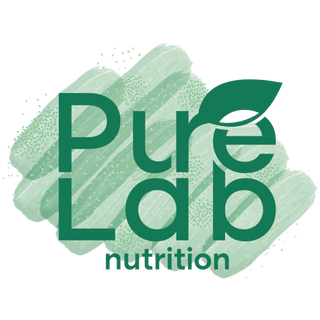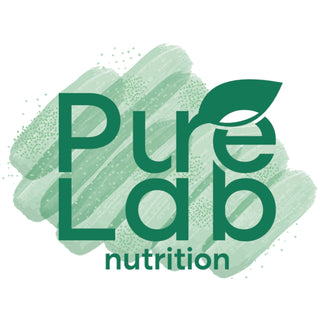Sport is good for your health! As long as you respect a rest period between two training sessions and don't do just anything.
Whether you are a seasoned athlete or a weekend enthusiast, let your body rest before getting back into it. Take care of your body without mistreating it and enjoy all the benefits of sport!
In this article, we explain why it is important to recover and what techniques to use for effective sports recovery. 😀
What is sports recovery?
Definition
Intense physical activity puts the body to work: the cardiac and circulatory systems as well as muscle tissues are used. In addition, the sports session results in an energy expenditure proportional to the intensity of the effort .
Sports recovery is when the body rests after a session of physical effort. It is a restructuring phase during which the body recovers and repairs damaged tissues.
Passive recovery or active recovery?
Among the different solutions for recovering from a sports session, we distinguish between passive recovery and active recovery. We explain:
- Passive sports recovery corresponds to a more or less long period of complete rest without sports training. It is recommended to let the muscles and joints rest after a particularly intense effort. Several beneficial actions can optimize this sports recovery time: sleep, massages, good hydration and diet.
- Active recovery involves engaging in low-intensity physical activity: very slow, low-intensity jogging or light mobility exercises at low speed, for example.
The benefits of sports recovery
Good sports recovery allows the body to:
- to eliminate toxins more quickly;
- to promote good blood circulation;
- to supply the body with nutrients;
- to reduce muscle pain and aches;
- to strengthen flexibility and mobility;
- to reduce stress;
- to improve sleep.
The sports recovery stage is therefore the key to increasing your performance and maintaining a resilient body. 💪
Are you convinced? We reveal the best methods for adopting good habits between two sessions!
What techniques to use?
There are many techniques for recovering between two sports sessions. It's up to you to choose among the recovery methods those that best suit your body!
Considering phasing out 🚶♀️
Here is a first tip to put in place, whatever the sporting activity you practice: think about gradually reducing your efforts during the last 10 minutes of the session. This decrease in intensity helps the cardiovascular system to return to normal gently and in a much less brutal way.
For the body, it is an ideal time of transition towards the sports recovery phase.
Try cold or cryotherapy 🥶
Cold plays a vital role in the pain and natural inflammation caused by physical exertion. By applying cold compresses to sensitive areas, pain is reduced and blood circulation is stimulated.
You're not sensitive to the cold? Then why not (on medical advice of course) try a bath with water between 10° and 15° for 15 minutes maximum to relieve aches and pains!
The less daring will opt for a cold shower or the application of ice packs. Integrating cold into the sports recovery process ensures immediate well-being after the sports session.
Get a massage 💆
Are you looking to reduce the feeling of fatigue and muscle pain?
Massages and self-massages after sports are very effective. They act as natural anti-inflammatories, directly affecting the intensity and duration of muscle aches. They also help improve muscle comfort after physical exertion. Getting a massage and massaging yourself helps relax tense muscles: goodbye to pain and a feeling of well-being! Massage also increases the flexibility of tendons.
In most cases, the massage can be performed on the legs, as they are used in many sports: bodybuilding, running, cycling, team sports, etc. Whatever the sport practiced, massage is one of the most effective sports recovery solutions. It also helps to feel relaxed and to soothe any mental tensions and to relieve stress.
Think about stretching 🧎♂️
We forget to stretch after intense physical activity? What a mistake!
The body reminds us of this the next day when we get out of bed! If you still haven't incorporated stretching into your workout, it's time to change your habits.
You can do stretches without forcing for a few seconds to relax your muscles and feel lighter. Spend more time on the stretching session and do them slowly and intensely to gain flexibility. Whatever type of sport you practice, don't forget to integrate stretching into your session for effective sports recovery!
Stay hydrated 💧
ANSES recommends that adults drink between 1.5 and 2 litres of water per day, even before feeling thirsty. This minimum requirement for water intake does not take into account sports practice. During a sports session, water loss is very high. It is therefore necessary to follow certain advice to avoid dehydration:
- Drink enough before your workout.
- Continue drinking during the session if it lasts more than an hour and you are exposed to heat.
- For perfect sports recovery, hydrate yourself well after the session during the rest phase.
Adequate hydration helps reduce muscle tension and other contractures. Adopt good habits by always having water on hand. Regular athletes can also consume other drinks such as fruit juices that contain antioxidants.
Prioritize healthy eating 🍽
Nutrition plays a key role in sports recovery. By practicing physical activity, the body draws on its energy reserves. A good diet therefore allows you to regenerate them after exercise. Warning: no feasting after the sports session! Instead, choose nutritious foods to fill up on energy.
Feeling the need to snack right after exercise? Choose foods rich in carbohydrates and lean proteins that will help replenish muscle energy stores and repair muscle tissue. On the menu: whole grains, fruits and vegetables, dairy products, fish, meat, eggs and legumes.
Adopt quality sleep 😴
There's nothing like a good night's sleep to recover after intense physical activity! But you still need to sleep well... Here are some tips to help you get a peaceful and restful night's sleep:
- Respect regular bedtimes and wake-up times at least on weekdays.
- Two hours before going to bed, reduce exposure to blue light which has a strong impact on sleep.
- Avoid consuming caffeine, alcohol and any other stimulants in the evening.
- Schedule intense sports training during the day rather than in the evening.
An adult needs about 7 to 9 hours of sleep per night. By respecting this sleep time, you will be in great shape for the next day's sports session! On the other hand, if you do not sleep enough, your performance will decrease significantly. Good sports recovery therefore requires quality sleep which helps the body to regenerate.
Use compression
Compression garments help reduce muscle aches and stiffness. They improve venous return and blood circulation. Compression applied to the legs, arms or trunk helps limit inflammation and swelling. Wearing compression socks after exercise for 2 hours is an effective way to speed up sports recovery.
Try electrostimulation ⚡️
Another technique for recovering after a sports session: electrostimulation.
Electrodes send electrical stimulations, which promote blood circulation, oxygenation of muscle tissues and their repair. This electrostimulation technique helps reduce pain and relax muscles. It is a sports recovery method often proposed to endurance athletes.
Adopt active recovery 🧍♀️
The active recovery method can be effective for anyone who practices endurance sports or bodybuilding. The goal is to improve the elimination of toxins and lactic acid produced during exercise.
Effective active sports recovery involves short training sessions with low intensity. Depending on your preferred activities, you can choose between walking, running, cycling or indoor sessions. consume in moderation to recover well between two more intense sports sessions!
The best food supplements for good recovery
Are you looking for healthy solutions to improve sports recovery? Some food supplements can help you recover effectively. We tell you everything!
The benefits of spirulina and lysine on muscle recovery
Rich in vegetable proteins, antioxidants, vitamins and minerals, Organic Spirulina contributes to muscle development and contributes to endurance capacities. With a spirulina cure, you contribute to muscular and joint well-being, thanks to the presence of proteins and minerals, and the risks of discomfort are reduced. Do not hesitate to add this supplement to your diet to take full advantage of the benefits of spirulina on bodybuilding.
As for L-lysine, it is useful for strengthening muscle mass, as it participates in the formation of muscle proteins.
Omega 3: good for the heart and muscles
Fatty acids are essential for the proper functioning of the body in general. To support sports performance, consider taking an Omega-3 cure. Their benefits? They play a role in the integrity of muscles, in particular, and in the preservation of the cardiovascular system. Indeed, these lipids enter directly into the composition of the membrane of our cells.
In short, there is no longer any doubt: the benefits of Omega-3 for bodybuilding and sport are undeniable, as well as for sports recovery!
Marine collagen to promote joint comfort
Marine Collagen contributes to joint comfort. You can take it to take care of your joints, which are sometimes very stressed during sports activities: the bones, ligaments and muscles will benefit from this supplement.
Sports recovery now has no more secrets for you! You have all the keys in hand to best manage your sports sessions and rest periods. Pleasure and performance: here is the winning duo of your sports program!












